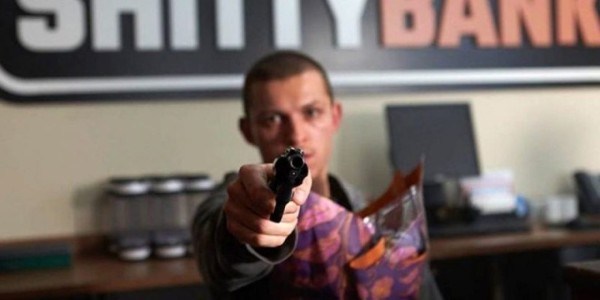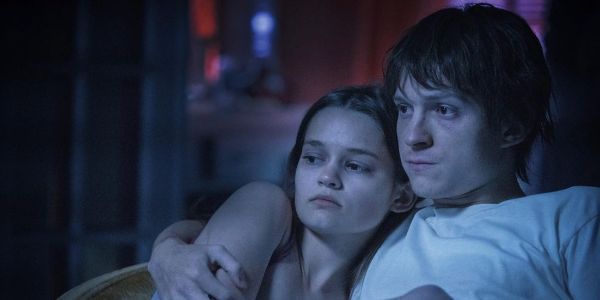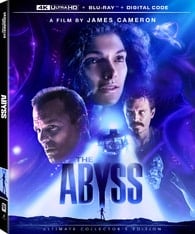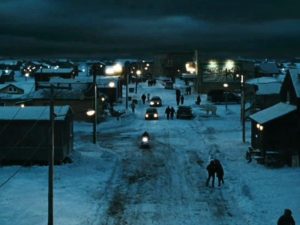Is there anything more fascinating than a ‘blank check?’ You know, that moment when a filmmaker — or filmmakers — achieve so much success, whether by acclaim or box-office, that they’re given carte blanche to whatever they desire.
Have any passion projects you’ve been unable to get made? Want us to add an extra couple million onto that budget for you? Throw in final cut, just for good measure?
The phenomenon, which also serves as the premise for the delightfully fun podcast series “Blank Check with Griffin & David,” is an invitation to learn more about a filmmaker, what interests drive them, what fuels them to pick certain projects. Sometimes the results are wondrous, offering challenging or idiosyncratic art that feels like a crystallization of a filmmaker’s aesthetic. Other times the projects fail, but do so in spectacular fashion, often allowing you to see the dark side of what happens when that same filmmaker’s instincts go uncheck. Simply put, there’s always a narrative to unpack.
Cherry is one of these such projects, a violent, provocative, and exceedingly stylish picture that lets two of the most financially successful filmmakers of the last decade cash in their chips and go hog-wild, for better and for worse.

Both Anthony and Joe Russo cut their teeth largely through television, lending their hand to series such as Community and Arrested Development. Yet, it’s been their work through the Marvel Cinematic Universe that’s arguably brought them the most attention, helming four box-office juggernauts, including 2019’s Avengers: Endgame, which until recently held the title of the highest-grossing movie ever made. What then, after global domination?
A Misuse of Style
Cue Nico Walker’s 2018 novel, Cherry, loosely based on his own experience as an Iraq war veteran, battling PTSD and robbing banks to fund his addiction to opioids. It’s certainly edgy material, the kind that might otherwise be difficult to get made without the right leverage or proven track record of those involved. The material also allows for a sampler platter of different genres, jumping from coming-of-age romance to war, addiction drama, and finally, a grungy crime-thriller.
However, this is ultimately a movie with a lot to prove, and it becomes hard after a while to separate what it’s meant to reflect about the people who made it versus whatever thematically Cherry wants to say about war, addiction, masculine rage, or generations lost to tragedy. The stakes that ultimately matter are for the Russo’s themselves, not the increasing perilous situations that befall the movie’s characters.
Up to this point, the Russo’s style has been…workmanlike. What made them a natural fit for the MCU was their television experience, moving a story along in a single installment or episode without disrupting the previously established aesthetic. On display was an understanding of story structure, of individual characters, and how those people functioned inside a larger narrative. Cherry, meanwhile, feels like a styling exercise. Nearly every shot is engineered to showcase some elaborate visual trick. That kind of rapid-fire, go-for-broke stylization can be intoxicating; I always wish for more style in my movies than less, but in Cherry, it reaches a point of being confounding rather than astonishing.
The movie’s deployment of jarring smash cuts, fourth-wall breaks, slow-motion, tracking shots, aspect ratio changes, and….you know what, I think you get the picture. Take a minute to think of every clever visual flair you’ve ever seen in a music video before. It’s likely all used here.
The movie is chaotic, deliberately so, but that chaos begins to feel more academic than instinctual the longer the movie goes on. Even when filmmakers such as Oliver Stone or Martin Scorsese push their pictures’ stylized reality with similar techniques, using subjective filmmaking through stylized shot choices, camera, movements, and editing, it’s to place us as an audience inside the mindset of the film’s characters.

At times Cherry gets close to that level of immersive filmmaking, particularly in its opening hour. However, before too long, the movie’s visual language comes to represent less the headspace of its protagonist than it does a highlight real of every technique the Russo’s have managed to master over their career. Considering their past work, it’s hard not to view Cherry as an aggressive attempt to reframe themselves as filmmakers. But, when that attempt becomes the equivalent of, as Stephen Soderberg coined, standing in between the audience and the movie, waving your hands, all there is to view is the technique.
How to Best Use Tom Holland
But, while the Russo’s direction of visuals feels sloppy in its self-acknowledgment, their work with star Tom Holland becomes maybe the only aspect of the movie that wholeheartedly works. And it’s not surprising. The Russo’s have worked with the young actor three times before and clearly understand his presence on screen. Holland similarly seems out to prove something here as well, no doubt indicating he has a much longer career ahead of him after Spider-Man. However, I think the charm and innocence that makes him so lovable as the friendly neighborhood web-slinger is precisely what works in his favor in Cherry.
I’ve talked to multiple people already who feel Holland was miscast, judging by how young and boyish he seems in nearly every scene. But, to me, that boyishness works. Whatever faults might be in their visual filmmaking, the Russo’s clearly understand their star. Despite the darker undertones, Holland’s innocence as a performer always comes through. The few moments the movie clicks highlight the horror of Holland’s teen-boy looks enveloped in the movie’s grotesque imagery.
The role here gives the young actor much more to work with than say Devil All the Time, an eye-rolling and sluggishly grim film about backwoods violence that gives Holland little to do other than be bruting. That movie felt embarrassed of Holland’s youthfulness; it wanted him to be Joe Don Baker in Walking Tall. But, Cherry, on the other hand, wants to pervert Holland’s image and let that fuel the tragedy; a wide-eyed teen ravaged by the mental and physical toll of war and substance abuse.
A braver but still grueling movie would have trusted that conceit and leaned into it more, trusting the star and our relationship with him to sell the horror. Instead, all that potential becomes lost inside an endless barrage of tricks. Cherry wants to be a movie about tragedy and weighty thematic issues but is too concerned with showing off for points on a scoreboard.
Cherry is currently streaming on AppleTV+
How did you feel about the Russo brother’s newest film? Let us know in the comments below!
Watch Cherry
Does content like this matter to you?
Become a Member and support film journalism. Unlock access to all of Film Inquiry`s great articles. Join a community of like-minded readers who are passionate about cinema – get access to our private members Network, give back to independent filmmakers, and more.
Join now!



